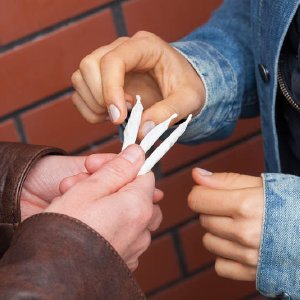Recognizing Drug Abuse Could Be a Parent’s Stiffest Challenge

Before there is rehab, there is the realization that your child is tearing his (or her) life apart with drugs. Sometimes, this realization is very slow coming. Why is it so slow? Because denial gets in the way.
Denial is nothing to be ashamed of. The very best mothers and fathers go through this. But it is vital – like your child’s life is absolutely on the line – to recognize denial and stomp it into the ground. Replace it with a clear vision of the problem you are dealing with. Then you are in the right position to overcome the problem.
Why is denial such a common problem?
1. Mothers and fathers love their children unconditionally and want to trust and support them as they get started on their adult lives. Problems, accidents and illnesses look like occasions for help, advice, maybe even financial support, not investigation and questions.
2. The very first time a teen or young adult reaches for a drug or drinks when they are underage, they know they’ve broken the rules. They’re not going to walk in the house and say, “Mom – Dad – I was smoking weed tonight.” They are going to keep it a secret. They’ll start constructing reasons that justify keeping these secrets. “It’s my life,” “Everyone else is doing it,” “They’re not very interested in what I do anyway so I’ll just do what I want.”
3. As the secrets accumulate, they’re going to isolate themselves from their parents and often, their siblings too, if their siblings are not sharing the same secrets. Parents are going to have less opportunity to spot the signs of drug use because suddenly, they seldom see their teenaged child or the young adult who’s working or going to school.
4. As drug use becomes regular, red flags are going to show up. Parents will begin to ask questions. Siblings might wonder what got into this person to make him so unfriendly. This is when the real manipulation and lies start. Every problem that shows up will have an explanation. Every error will be someone else’s fault. Every absence has a reason that might make sense. Or the person will begin to strike out, blaming others for invading his privacy, being suspicious of him, not trusting him. He’ll turn the tables on someone who’s pressing him for answers, trying to find out what’s wrong. Instead of admitting the problem, he could become vicious, argumentative and accusative, even aggressive.
5. If he goes away to college or to a distant job, the secrets really pile up. But even from a distance, red flags are showing. Is he chronically out of money? Does he seem to get sick a lot? When he left, was he excited about his career choice but now he never mentions it? Is he hard to reach on the phone?
He’s going to have an answer for every question, a logical reason for every problem that has nothing to do with him being the cause. But actually, those answers won’t quite add up. There’ll always be a little something that seems off. Because it is off. Way off.
In these days of widespread opioid addiction, denial can be deadly. Addiction is a terrible problem to face but you can’t even deal with it if you don’t know it exists.
If you’re searching the internet because you have fears and suspicions and you found this article, the best thing you can do is set aside your denial and your hopeful wish that this isn’t really the problem. (After all, if it turns out that it isn’t the problem, great! You have much less to deal with!) Talk to the person you’re worried about directly, but kindly and with care and love in your heart. Have reinforcements present like your spouse, mature siblings, other family or close friends. You’re going to have to persist through the lies and make the point that you know you have not been told the truth and that you know something serious is going on. Keep going till you get the answer, even if it takes more than one conversation.
If your adult child is away at school or in another town to work, a surprise visit might tell you what you need to know. You might find your loved one looks unhealthy, has sores on his face or body, no food in the house, acts and talks in ways not normal for him.
Addiction is a challenging problem to overcome but knowing the real reason for accidents, illnesses, missing money and changes in behavior gives you your best shot at resolving the real problem and possibly saving your loved one’s life.
To learn about the signs of the most commonly used drug, visit these pages on our website.


